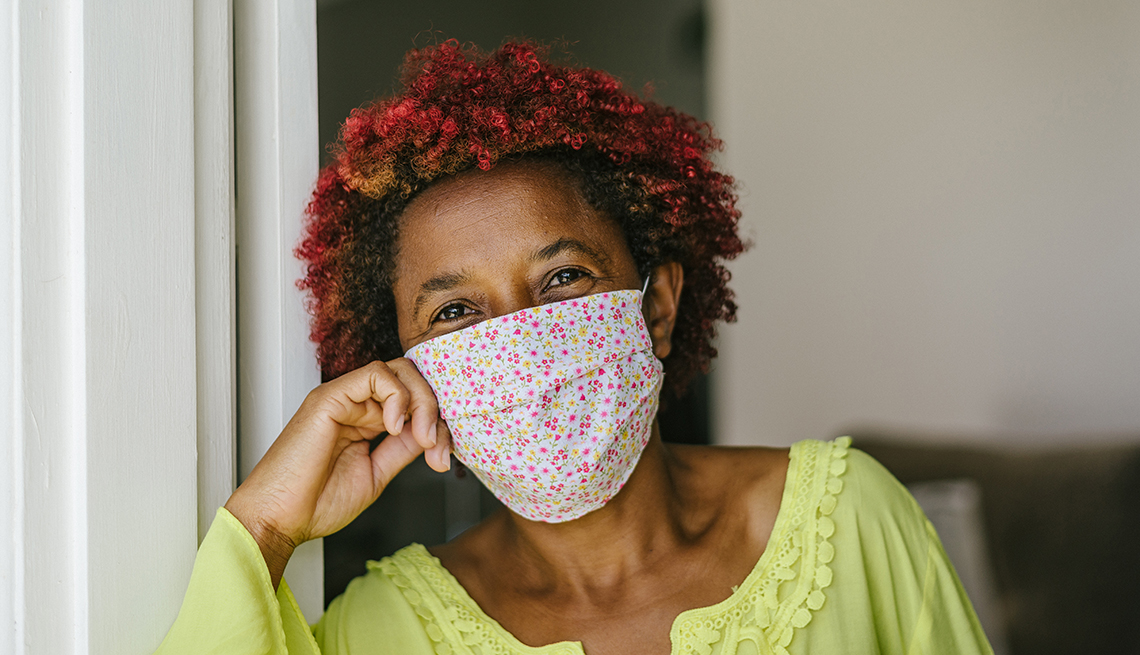AARP Vital Voices: The Impact of COVID-19 in the African American Community
As America struggles to distribute the COVID-19 vaccine, educating at-risk communities, especially African Americans 45-plus, about the safety of vaccines is essential to tackling the coronavirus pandemic. The first, vital step in the effort should be to better understand how older African Americans are experiencing the coronavirus pandemic. Battling COVID-19 isn’t something we do to African American communities; it’s something we do with these communities.
AARP sought to understand how African Americans 45-plus are experiencing the pandemic and what information older African Americans would need to make an informed decision about getting vaccinated. Our Vital Voices survey fielded in June 2020 demonstrated that community plays a major role in African Americans’ lives, and reaching out through their local communities provides an opportunity to win the trust of these older Americans on this vital topic.
Many factors contribute to vaccine hesitancy in the African American community, including limited access to health care, persistent bias in healthcare systems, higher rates of chronic conditions, and higher incidences of employment in essential jobs. Many African Americans are also skeptical of vaccines because of America’s shameful history unethical experiments on them. Some African Americans might still remember the Savannah mosquito experiment (1956, 1950), the Tuskegee Syphilis Experiment (1972) and Henrietta Lacks' cancer cells (1951), which were taken without her knowledge or consent and were used in medical research. It’s not surprising that past injustices have sown distrust of the government in African American communities.
As recently as January 2021, a NORC/AP poll found that only 24% of African Americans planned to get vaccinated compared to 53% of white Americans. Fully 40% of African Americans did not plan to get the vaccine, and 37% were unsure. If African Americans do not take the vaccine, it will take longer for the African American community to reach herd immunity, which occurs when enough people become immune to a disease to make its spread unlikely. Herd immunity protects the entire community, even those who are not themselves immune. Without it, the virus will continue to impact the African American community and could intensify.
Isolation and the Role of Community
The coronavirus pandemic and the resulting shutdowns have caused economic and mental strain on all Americans and around the globe. African Americans 45-plus are no exception; 59% reported that COVID-19 has had a negative impact on their well-being. African Americans 45 to 49, however, are more likely than other age groups to report being negatively affected by the pandemic. Sheltering in place after the outbreak cut off many African Americans from traditional centers of their community. African American culture typically revolves around the three F’s — Faith, Family, and Food — but the pandemic has upended many African American traditions. For example, 65% of African Americans 45-plus reported that they were unable to attend religious services.
African Americans 45-plus have also been less likely to have daily or weekly interaction outside their immediate family during the pandemic. As the graph above illustrates, 17% of African Americans only have contact once a month or less with neighbors or family and friends they don’t live with.
Almost half of African Americans 45-plus report lacking companionship, and about 40% feel left out or isolated. Those between 45 and 50 are more likely than other older African Americans to report feeling isolated from others and left out; however, feelings of isolation and loneliness remain an issue for older African Americans, regardless of age. Overall, African Americans 45-plus are concerned about social connections as they age. Two in ten (21%) African Americans in this age group are extremely concerned about “not being connected with others in your community and having opportunities to socialize as they age”; 40% of African Americans 45-plus are extremely or very concerned about not being socially connected. Giving older adults and their families information about how widespread vaccination can possibly accelerate public immunity will likely help them make decisions about receiving the vaccine.
Adapting to Coronavirus in 2020
Although many older African Americans have struggled with isolation during the pandemic, they remain diligent in keeping themselves safe during this past year. Three out of five (62%) African Americans 45-plus reported that wearing a mask in public has been very easy, compared to 52% of all Americans in the same age group. As the graph below shows, at the time of the survey in June 2020, older African Americans also didn’t have major problems meeting health providers through the internet, working from home (those who were able to), or sheltering at home. Perhaps the resilience of African Americans equipped them to handle the pandemic and embrace changes to their daily lives in 2020.
Roadblocks to Vaccine Adoption
Besides increasing trust in vaccine efficacy, distribution efforts need to consider that delivering the vaccines in African American communities might present unique challenges. Convincing African Americans to take the vaccine is one part of a successful vaccine adoption program, but availability and ease of adoption are central elements as well.
Another prevailing issue for African Americans 45-plus is mobility. A strong majority (58%) are concerned about “being able to get around their community to get the things they need and do the things they want to do as they age.” Almost two in five older African Americans are extremely concerned about getting out and getting around. Mobility could be a major roadblock to vaccine adoption and health officials should find ways to bring the vaccine to older Americans.
Addressing the issue of trust among older African Americans as soon as possible is essential because they have been disproportionately impacted by the coronavirus pandemic. When community members are skeptical about receiving the vaccine, trust and logistical barriers must be overcome. African Americans 45-plus may have stronger social connections than other older Americans, which could work in their favor. Perhaps people who feel more connected to their community will embrace the vaccine if they feel that it’s helping others. AARP seeks to be a trusted resource by sharing information about COVID-19, the vaccine, and other important issues so that older adults can make the right decisions for themselves and their families.
Search AARP Research
Enter a keyword below to find answers to your AARP Research questions.
Social Connections
Not Alone in Loneliness
About one third of U.S. adults age 45 and older report feeling lonely, an increase of approximately 5 million more people compared to eight years ago.
Find Out More

